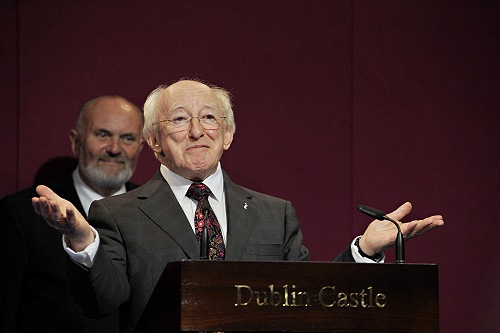The results of the first national major study into the lives of older lesbian, gay, bisexual and transgendered people are launched today. Visible Lives surveyed 144 people and interviewed 36 people in depth – all were over 55 and from the Republic of Ireland.
The study was commissioned by GLEN, funded by Age and Opportunity through the Get Vocal programme and the Health Service Executive, and conducted by a team of researchers from the School of Nursing and Midwifery at Trinity College Dublin.
The findings cover both the coming out and ageing experiences of older LGBT’s and makes proposals on how services should be delivered and policies developed so that growing older in Ireland is a positive experience.
I did postgraduate study on this area (my unfinished PhD) and from my first reading the Visible Lives study makes for remarkable and important reading on the experience of older LGBT people in experiencing health services, preparation for ageing, coming out and forming relationships and friendships and social supports as one grows older. There is a sense of pride and resilience amongst participants as the first cohort of out older LGBT people in Ireland whilst identifying the discrimination facing all older people and the added issues which face older LGBT people.
“We are the generation who are giving meaning to being ‘older LGBTs’, so there is challenge, adventure, a degree of excitement and surprise – and tremendous freedom!” Survey Participant
The current economic crisis is worrying many participants as it is many people growing older and worrying about pensions and contemplating working longer as they cannot afford to retire.
I do [have worries] but it’s nothing to do with being gay. It’s to do with the fact of the economic situation and pension-wise and I’m on a three day week, which is why I’m here now. Those are the worries I have but those are the worries of many people I’m sure now. (17 GM 61)
I think the other [worry] would be the financial bit. There is a security in knowing that you could afford a nursing home; there is no security if you’re depending on the State. (19 LF 58)
I spent most of my life working in [names country] without building up [an] adequate pension. Nearly all my friends live abroad and I am concerned that my financial situation will prevent me from seeing them again. (Survey participant)
Main Findings
– Most older people surveyed went through the whole of their adolescence and their early adulthood without disclosing their sexual orientation or gender identity to anyone and without any contact with other LGBT people.
– Over a third (35%) still feel that friends will reject them if they tell them they about their sexual orientation or gender identity.
– Over a quarter (28%) are not ‘out’ to any of their neighbours.
– One in ten are not ‘out’ to any of their close family.
– More than a quarter (26%) are not ‘out’ to any of their healthcare providers because of fear of negative reaction.
The recommendations of the report include
– creating a dedicated role to progress the implementation of the recommendations of the Visible Lives report;
– engaging with policy makers to ensure that the National Positive Ageing Strategy and other relevant policies and strategies are inclusive of the needs and circumstances of older LGBT people;
– supporting capacity building work in the older people’s sector and mobilisation of this sector to respond to the needs of older LGBT people;
– engaging with the HSE and HIQA to establish standards for the care of older LGBT people and ensure that nursing homes and residential care services communicate a positive message of inclusiveness and respect for older LGBT people;
– engaging with health and social care services to ensure that policies and practice are responsive to the needs of older LGBT people and are embracing the principles of equality, inclusion and respect for diversity.
The summary and the full report are online. The launch is being broadcast live also.



